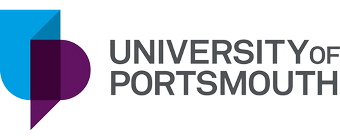Studying for a Master's in Biotechnology in Portsmouth, the UK's top biotech city, provides an excellent professional prospect. This postgraduate qualification provides students with molecular tools for global challenges such as genetic engineering, bioinformatics, and online biological databases. Students can focus their studies on their interests and excel in a variety of professions, including industry, academia, research, and development. In terms of research power, Portsmouth is ranked third among UK's modern post-92 universities. Later in your career, you will have the opportunity to specialize.

University of Portsmouth
MSc Biotechnology
Entry Requirements
A 2:1 honours degree or equivalent in a relevant subject. Professional experience and other qualifications may be taken into consideration for applicants not meeting this requirement.
English language proficiency at a minimum of IELTS band 6.5 with no component score below 6.0.
Career Prospects
This Master's degree in biotechnology specializes in the subject and prepares graduates for a variety of positions in firms ranging from start-ups to worldwide enterprises. Graduates receive a comprehensive understanding of life-enhancing technologies, tactics, and products employed in the biotechnology industry. They have the practical skills to succeed in this innovative field or pursue a research degree. Graduates have pursued careers as research scientists, business associates, sales representatives, forensic interpretations team leaders, molecular pathologists, bone densitometry technicians, data analysts, clinical trials assistants, and account executives. Companies that have hired graduates include Cellmark Ltd, Portsmouth Trust NHS, Publicis Health, and Eli Lilly.
Course Details
The Master's degree program at Portsmouth University offers a comprehensive, specialized program for international students. The program is divided into two years: full-time study and part-time study. Full-time students will spend 37 hours per week, including independent study and teaching, while part-time students will spend 18 hours per week. Between February and June, full-time students are expected to be on campus Monday-Friday for project work.
The Master's study is more specialized than an undergraduate degree, allowing students to focus on a specific topic and work closely with academics committed to the subject. Teaching methods include lectures, seminars, worships, and practical work. Assessments will be conducted through written exams, practical work, problem-solving presentations, essays, and project work. Students can test their skills and knowledge informally before undergoing assessments that count towards their final mark. Feedback on both practice and formal assessments is available to help students improve in the future.
Course Modules
Core modules
Bioinformatics and Omics - 30 credits
Biotechnology Research Skills and Project - 60 credits
Molecular Biotechnology - 30 credits
Optional Modules
Biotechnology Enterprise - 30 credits
Engineering Animals - 30 credits
Environmental Microbiology - 30 credits
Molecular Medicine - 30 credits
Are you ready to start building your future?
Contact our admission counseller and get a free consultation.













